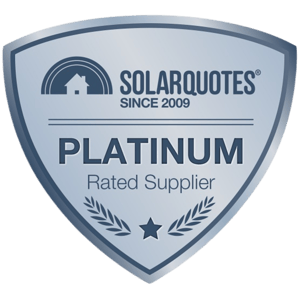Solar Energy for Beginners: A Simple Guide to Getting Started

Discover the essentials of solar energy for residential users in Australia. Learn how to harness solar power effectively and make informed decisions for a sustainable future.
Understanding Solar Energy Basics
Solar energy, derived from the sun's rays, is a renewable and cost-effective solution for residential energy needs, particularly in sunny regions like Australia. Familiarising yourself with the fundamentals of solar energy is crucial for homeowners considering this eco-friendly alternative.
By harnessing solar power, homeowners can reduce their carbon footprint and reliance on traditional fossil fuels, contributing to a cleaner and greener environment.
What is Solar Energy?
Solar energy involves the conversion of sunlight into electricity through photovoltaics (PV) or concentrated solar power. This renewable energy source plays a vital role in decreasing carbon emissions and decreasing dependence on non-renewable resources.
By embracing solar energy, individuals can take a proactive step towards sustainability and environmental conservation.
Benefits of Solar Energy in Australia
Australia's abundance of sunshine makes it an ideal location for solar energy production. Homeowners can enjoy benefits such as reduced electricity bills, increased property value, and a positive impact on the environment by switching to solar power.
Embracing solar energy in Australia not only offers financial advantages but also contributes to a cleaner and more sustainable future for generations to come.
The Basics of Solar Power Systems
A standard solar power system consists of components like solar panels, inverters, battery storage, and monitoring systems. Each element plays a crucial role in efficiently converting solar energy into usable electricity for residential use.
Understanding how solar power systems function is essential for beginners looking to make the transition to a more sustainable energy source.
Evaluating Solar Potential
Before installing solar panels, it is essential to assess your home's solar potential. Factors such as roof space, orientation, and shading need to be considered to maximize solar energy absorption.
By evaluating your location and sunlight availability, you can optimize the placement of solar panels to harness the maximum amount of energy.
Types of Solar Energy Systems
There are two primary types of solar systems suitable for residential use: grid-connected systems and standalone systems. Each system has its unique features and benefits, catering to different energy needs and preferences of homeowners.
Choosing the right type of solar energy system is crucial for maximising energy efficiency and cost-effectiveness in the long run.
Financial Considerations
While there are initial installation costs associated with solar energy systems, long-term savings on energy bills make it a worthwhile investment for homeowners. Additionally, various government incentives and rebates in Australia further encourage the adoption of solar energy.
By understanding the financial aspects and benefits of solar energy, homeowners can make informed decisions that align with their budget and sustainability goals.
Choosing the Right Solar Panels
Selecting the appropriate solar panels based on factors like panel types, efficiency, size, and placement is essential for maximising the performance of your solar energy system. Monocrystalline and polycrystalline panels offer different efficiency levels, catering to varying energy needs and budgets.
By choosing the right solar panels, homeowners can ensure optimal energy production and long-term savings on electricity bills.
Installation Process
Professional installation of solar panels is recommended to ensure safety, efficiency, and compliance with local regulations. While DIY installation may seem cost-effective, professional installers have the expertise to set up the system correctly and address any technical issues.
By entrusting the installation to professionals, homeowners can enjoy a seamless transition to solar energy with peace of mind.
Maintenance and Care
Regular maintenance of solar panels is crucial for ensuring their longevity and efficiency. Simple tasks like cleaning the panels and conducting system check-ups can significantly impact the performance and productivity of your solar energy system.
By following a maintenance routine and addressing any issues promptly, homeowners can maximize the benefits of solar energy for years to come.
Environmental Impact
One of the significant advantages of solar energy is its positive environmental impact. By reducing reliance on fossil fuels and decreasing greenhouse gas emissions, solar power contributes to a cleaner and more sustainable future.
By embracing solar energy, homeowners can actively participate in environmental conservation efforts and promote a greener lifestyle.
Future of Solar Energy in Australia
The solar energy sector in Australia is rapidly evolving, with advancements in technology making solar energy more efficient and affordable for residential users. Community solar projects and real-life case studies demonstrate the growing popularity and success of solar energy across the country.
By staying informed about the latest trends and developments in solar energy, homeowners can make informed decisions and contribute to the ongoing growth of renewable energy sources in Australia.
Overcoming Common Concerns
Addressing common concerns such as reliability, weather factors, and the resale value of properties with solar systems can help homeowners make informed decisions about transitioning to solar energy. By understanding the benefits and limitations of solar energy, individuals can overcome misconceptions and uncertainties.
By debunking myths and clarifying facts about solar energy, homeowners can confidently embrace this sustainable energy source for their residential needs.
How to Get Started
A step-by-step guide for beginners looking to embark on their solar energy journey. From assessing solar potential to consulting with solar providers and ensuring safety and compliance, this guide provides essential information for a successful transition to solar power.
By following the step-by-step guide and seeking advice from professionals, homeowners can navigate the process of going solar with confidence and ease.
FAQs
Addressing frequently asked questions about solar energy provides clarity and guidance for homeowners considering this renewable energy source. From long-term benefits to maintenance tips, these FAQs cover essential information to help individuals make informed decisions about solar power.
By understanding the common questions and concerns related to solar energy, homeowners can gain confidence in their choice to embrace this sustainable and cost-effective energy solution.
%20(1).png?width=265&height=96&name=www.smartenergyanswers.com.auhs-fshubfsSmart%20Energy%20Answers%20Logo%20(HIRES)%20(1).png)

.png?width=514&height=121&name=Tesla%20Powerwall%203%20(new).png)







